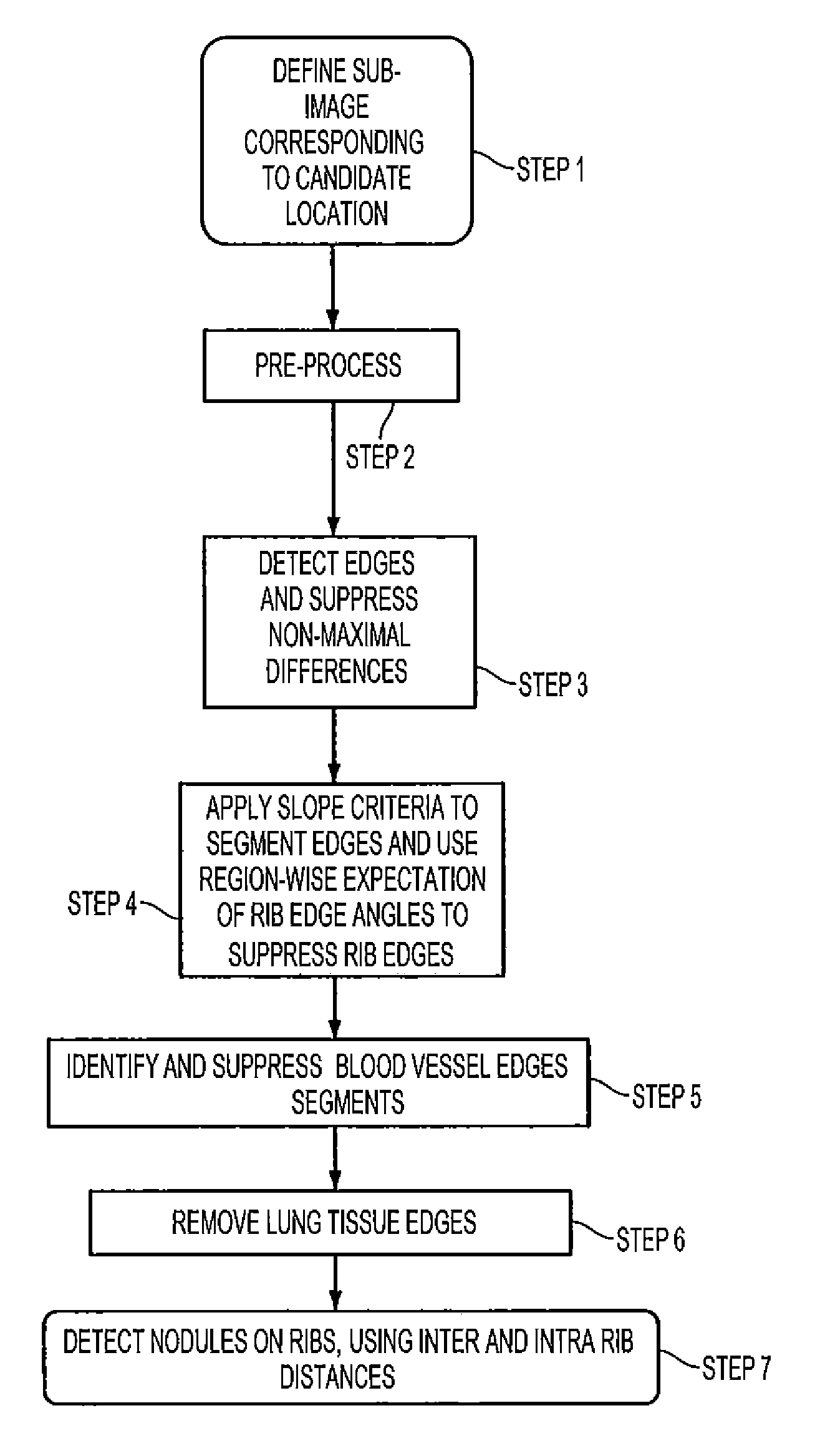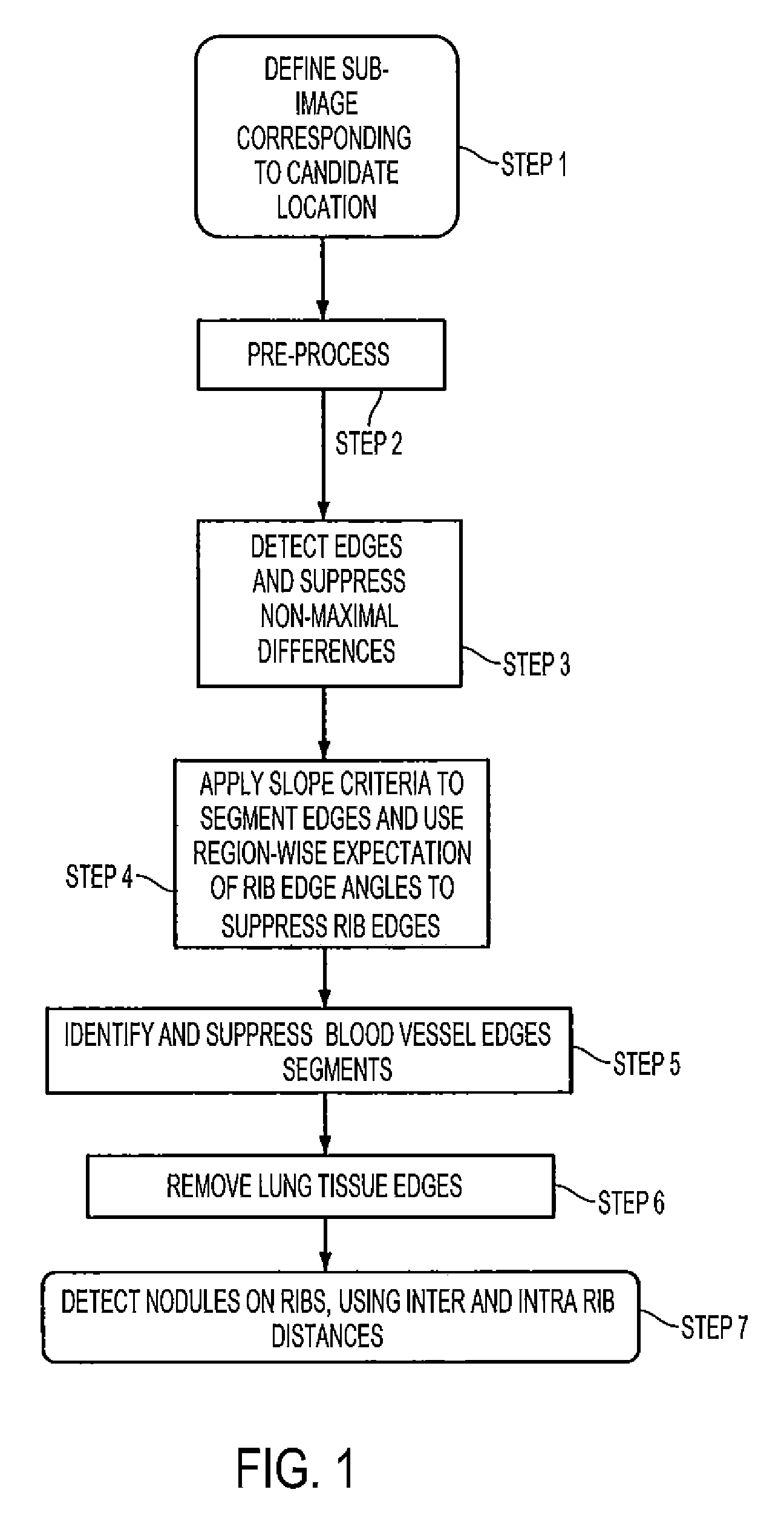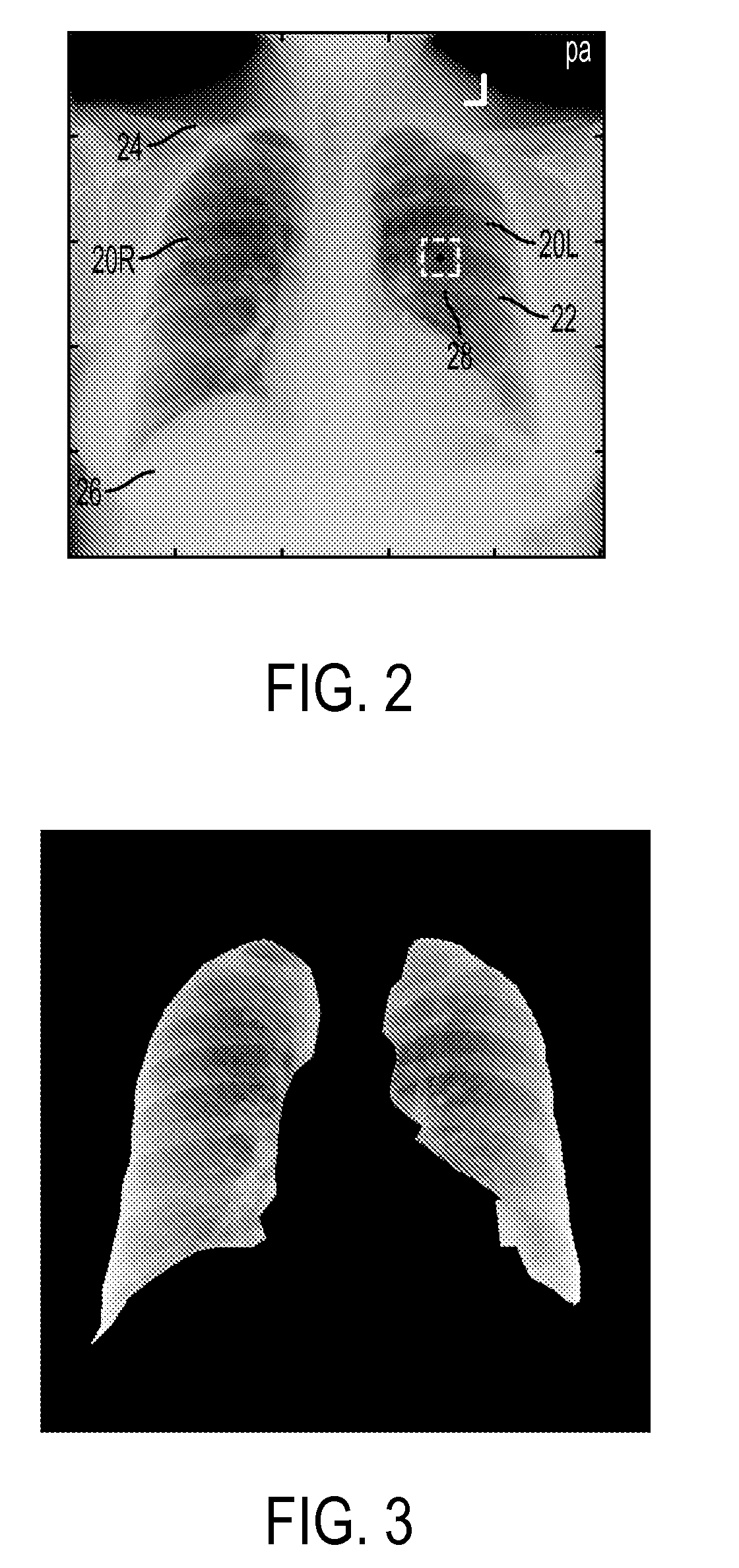Identifying ribs in lung X-rays
a technology of lung x-ray and ribs, which is applied in the field of computer aided diagnosis (cad), can solve the problems of difficult isolation and identification of nodules, difficult to repeat the test, and blurred resultant radiography images
- Summary
- Abstract
- Description
- Claims
- Application Information
AI Technical Summary
Benefits of technology
Problems solved by technology
Method used
Image
Examples
Embodiment Construction
[0077]The shadows of blood vessels and ribs in posterior anterior x-ray radiography images of the chest obscure nodules, making them difficult to identify.
[0078]Embodiments of the present invention are directed to detecting, identifying and correctly characterizing physiological features, particularly ribs and blood vessels which show up in x-ray radiographs, obscuring nodules and other irregularities of interest. Applications include training classifiers, improved CAD systems and faster more accurate diagnostics.
[0079]An edge detection scheme is employed. When looking for nodules and the like, by attributing edges appearing in posterior anterior x-ray images to ribs, blood vessels or edges of the lungs themselves, these may be discounted. Non-discounted edges are more likely to be nodules requiring further consideration. In this manner, the ratio of nodules to false positives is maximized and the effectiveness of CAD image analysis is improved.
[0080]Correct identification of candid...
PUM
 Login to View More
Login to View More Abstract
Description
Claims
Application Information
 Login to View More
Login to View More - R&D
- Intellectual Property
- Life Sciences
- Materials
- Tech Scout
- Unparalleled Data Quality
- Higher Quality Content
- 60% Fewer Hallucinations
Browse by: Latest US Patents, China's latest patents, Technical Efficacy Thesaurus, Application Domain, Technology Topic, Popular Technical Reports.
© 2025 PatSnap. All rights reserved.Legal|Privacy policy|Modern Slavery Act Transparency Statement|Sitemap|About US| Contact US: help@patsnap.com



